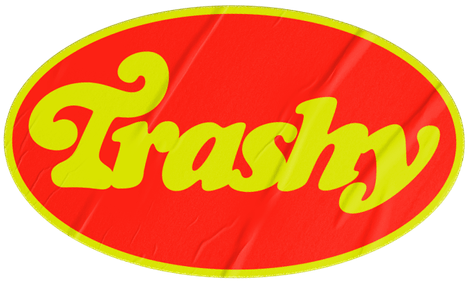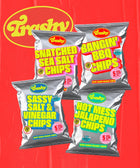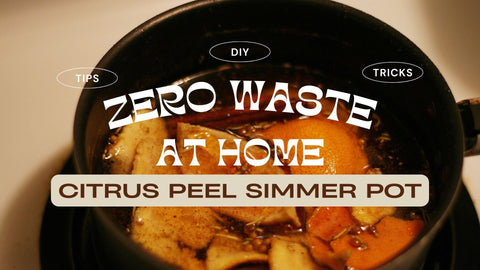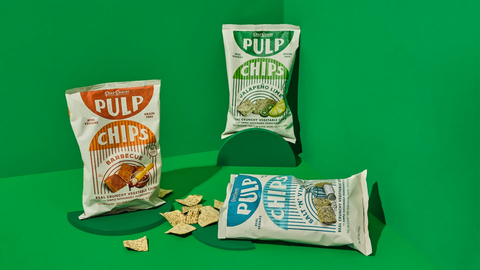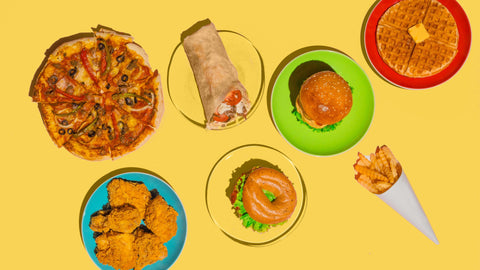
By Farah Stack
There is no better or tasteful way to be a climate activist than doing it with the thing we love most: food!
It may not seem like the individual food choices we make on a daily basis have any impact on other people or the planet, but collectively, they can have a quite large effect on the world.
The good thing is that the power is in our hands. As individuals, we have the power of choice and voice. We can voice our opinions and passions through our choice of food. Food is our catalyst for change to ensure that what we’re eating is sustainably sourced, produced and distributed ethically without exploiting people or the environment, and that no food is left behind to go to waste.
The power is in our hands, so let’s use it wisely. Here are some ways how you can turn your daily food choices into activism, or what we like to call ‘snacktivism!’
Major food brands and agriculture companies are failing on climate and human rights.In fact, only 26 of the world’s 350 largest food and agriculture companies are working to reduce greenhouse gas emissions in line with the Paris Agreement. Not only are these major corporations failing to address the environmental destruction of their food production systems, but the vast majority (309) of these 350 companies do not have comprehensive measures in place to prevent forced labor across their business activities and supply chains.
If these industries are not going to take action within their own food chains, then it is up to us as consumers to demand change. Through conscious consumer habits, we can elevate the lives of people all over the world, save ecosystems and important carbon sinks from deforestation, and ensure that what’s left of our world’s healthy soils aren’t eroded or polluted from chemical-heavy farming techniques and other harmful agricultural practices.
Know before you go shopping for your groceries and clothes. Ask yourself, who made this product? Where is this product coming from? Are they ethically sourcing their products? What company am I supporting and do they support human rights within their own organization? Asking these questions before we go to the store ensures that our monetary vote goes towards companies truly committed to these human and climate rights’ issues.
Growing, producing, manufacturing, transporting, and throwing away food has negative consequences for our planet. From the amount of fossil fuels, to the water, fertilizer and land resources used to bring the food from the ground to our plates, it’s important to start thinking about which foods have greater environmental costs compared to others.
Some foods have greater impacts than others. Meat and dairy products, particularly from cows, have a significant impact on our planet, with livestock that account for 14.5% of the world’s greenhouse gasses each year! Consuming less meat and dairy on a daily basis will have the biggest impact on your climate footprint. Some of our favorite climate friendly food choices include plant-based and organic meals, upcycled foods, and drought tolerant crops.
We are definitely pulp-proponents of implementing greens and veggies into our meals daily. The National Resource Defense Council (NRDC) estimates that if all Americans eliminated just one quarter-pound serving of beef per week, the reduction in global warming gas emissions would be equivalent to taking four to six million cars off the road!
Think green, eat green!
Composting is one of the best solutions to preventing methane emissions from escaping into the atmosphere and turning “waste” into healthy soils.
Food scraps and organic waste together make up more than 30% of what we throw away, and could be composted instead. Our collective composting efforts as a community, society, and world would help curb greenhouse gas (GHG) emissions and especially methane, a GHG that is 80 times more dangerous than carbon dioxide.
Community gardens are another great place where you can bring your household organic waste to compost. They are also wonderful spaces where you have the opportunity to connect with others and source fresh and locally grown products and ingredients.
What we eat matters. It is not too late to change our food choices, voice our concerns about non-ethical standards and companies, and work together with others to create more conscious consumer behaviors. Whether it’s at home, work, or school, we can all be snacktivist’s to make the world a better place.

About Pulp Pantry
Pulp Pantry is the maker of Pulp Chips, veggie chips that fight food waste made from real, fresh vegetables, sourced from the fiber (pulp) of cold-pressed juice. Pulp Chips make it convenient and delicious to eat more servings of vegetables and fiber.
Pair Pulp Chips with dips, top them on your salad, or dig in as a nutrient-dense afternoon snack (hello extra veggies, and fiber).
With 5g fiber & prebiotics in each serving, Pulp Chips the best go-to snack to satisfy cravings and hunger.
_____________________
• naturally gluten-free • grain-free • made without corn or potatoes • made with upcycled, sustainable ingredients • made from fresh veggies as the first ingredient • a good source of fiber in every serving
_____________________
✌︎ www.pulppantry.com
@pulppantry
www.instagram.com/pulppantry
www.twitter.com/pulppantry
www.facebook.com/pulppantry
